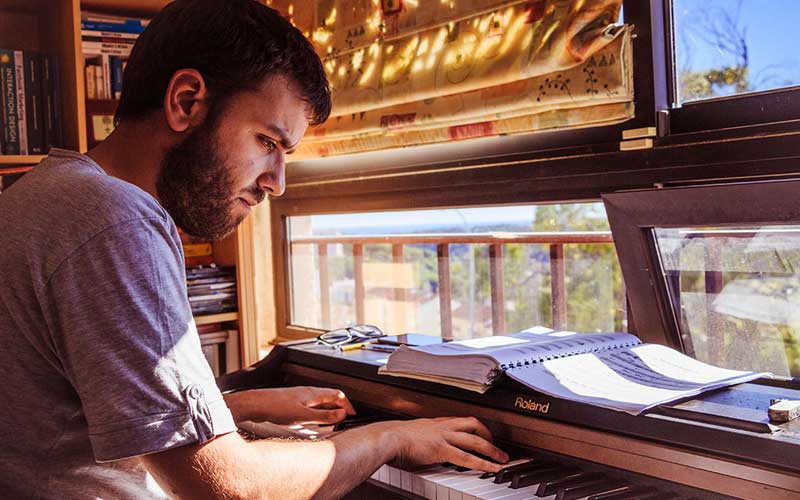Another very important factor that will make a difference in our practicing routine is our mood when we are practicing. We can only do so many things that could help prepare us psychologically prior to start practicing. Yet, due to our busy lives, we do not always have the time to prepare for practicing.
Still, try to unwind and forget the everyday problems before you practice. Block any negative thoughts and feelings, this is the time for you to learn, and learning requires concentration. This is really vital because perfecting a piece of music requires the most of our attention. Try to concentrate only on your music and leave your troubles behind. Convince yourself that the time of practicing is sacred and that nothing can influence your exercising. Those twenty minutes, an hour or four hours of working on the piano should remain undistracted from our everyday problems.
Grab a cup of tea and place it on top of the piano so you can have a sip every now and then in order to invigorate yourself. Gotcha! Actually, never leave drinks on top of the piano, since they might slip and land on your lap while practicing the fast movement of a frantic composer, i.e., Rachmaninov.’s third movement from his second piano sonata. And try to remember that a piano is not a dining table; you can’t reach comfortably to eat a burger. A more reasonable drink to have next to you would be a glass of water. It never fails to keep you energized.
Always remember that the more concentrated you are, the least hours of practice you would need.


